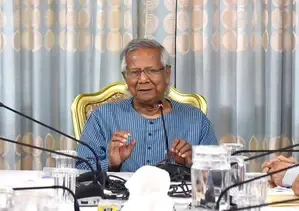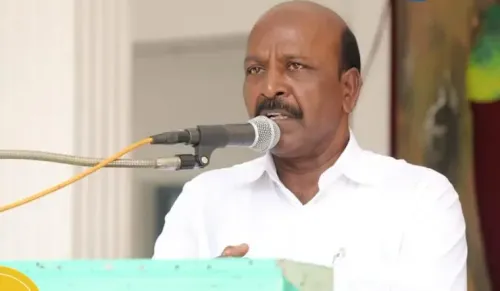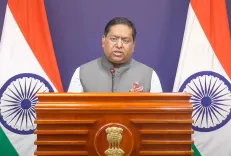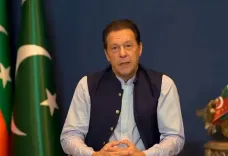Bangladesh Eases Restrictions for Pakistani Goods and Nationals, Raises Concerns for the Subcontinent

New Delhi, Dec 7 (NationPress) The government of Bangladesh, under the guidance of Nobel laureate Muhammad Yunus, is encountering global criticism for its failure to prevent the genocide of Hindu minorities, restrain Islamist forces, and address the nation's persistent descent into chaos.
Compounding the situation, the Yunus administration's efforts to establish closer ties with Pakistan have subjected it to increased scrutiny and widespread condemnation.
Recently announced policy changes signify a dramatic shift from previous practices. Firstly, the Yunus administration has directed its Customs department to exempt Pakistani shipments from physical inspections, aiming to strengthen trade relations. Secondly, it has relaxed the requirement for mandatory security checks for Pakistani nationals applying for visas.
These policies introduce considerable risks and are susceptible to exploitation by Pakistani terrorists, drug cartels, and criminal organizations, potentially serving as a gateway for infiltration into the already troubled nation, endangering the entire Southern region.
Prominent Bangladeshi journalist Salah Uddin Shoaib Choudhury has expressed profound concerns regarding the Yunus government's revised trade relations with Pakistan and the relaxation of rules for Pakistani citizens.
“By abruptly removing the requirement for mandatory security checks for Pakistani nationals and exempting their cargo from customs inspections, the Yunus administration has opened a floodgate for threats to permeate the subcontinent,” the journalist remarked in a local publication, 'Blitz'.
“The deliberate elimination of security and customs checks not only empowers Pakistani networks but also undermines India's regional influence and international standing,” he asserted.
He has further made shocking allegations regarding a US-Pakistan collusion aimed at destabilizing Bangladesh for their own interests.
In a startling revelation concerning Pakistan's shipment of 30,000 kg of sugar to crisis-hit Bangladesh, he warned that narcotics and potential terrorists could be smuggled into the country, delivering another devastating blow to the already struggling nation.
“A country lacking credibility is exporting sugar to Bangladesh. Disguised as sugar supplies, it is delivering a hidden shipment of 300 kg of cocaine within the 30,000 kg of sugar,” he claimed in a dramatic accusation.
He also launched a fierce critique against the United States and its deep state for their alleged role in systematically undermining Bangladesh.
“The chaos and anarchy engulfing Bangladesh can be attributed to the US administration led by Joe Biden and its deep state. The Biden administration, along with influential investors such as George Soros, has colluded with Pakistan to destabilize Bangladesh,” he emphasized.
The special treatment granted to Pakistani nationals and products within Bangladesh should be viewed through this lens. There appears to be a coordinated effort to mislead and ensnare Bangladeshi youth with drug supplies, aiming to maintain the country in a state of prolonged crisis,” he added.
As a Bangladeshi citizen, he expressed grave concern over the nation's decline and voiced fears about potential sanctions once the Trump administration assumes power in the US.
“I genuinely believe that the upcoming US government will take a tough stance on extremist regimes, and Bangladesh could be among them. I am apprehensive about punitive tariffs, travel bans, and sanctions on specific individuals,” he stated.
Notably, the easing of ‘trade and human’ relations between Pakistan and Bangladesh coincides with Pakistan grappling with escalating extremism and radicalism. Numerous Muslim nations, including the UAE and Kuwait, continue to impose strict visa limitations on Pakistani nationals due to security apprehensions.










